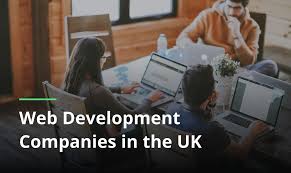Search Engine Optimization, or SEO, can appear like a jigsaw with numerous components. Every element is essential for your website’s search engine understanding and ranking. Among different components, one basic one is that you directly manage on-page SEO. It includes maximizing the content and layout of your website and indicating your value and emphasis to search engines. This guide will explain you more about few other important on-page SEO factors which can hence add worth in your website ranking. Your website’s visibility will improve, and more natural traffic will be attracted by carefully applying on page SEO tactics. Let’s dive into the discussion below!
List of most important on page SEO factors you should follow in 2024
Well-written content with great quality
One major and top on-page SEO element is excellent content. It’s about producing value-rich, educational, exciting material that appeals to search engines. You should never target audience by just incorporating keywords. Content quality is one of the most vital components of on-page SEO on which any expert SEO services provider would hence advise you always.
Develop exciting and educational material that meets user demands and search intent. This will enable you to offer solutions and responses that allow you to establish yourself as a reliable and essential source for search engines and users. Regularly publishing educational materials on popular subjects helps you to show in-depth knowledge and create topical authority in your field of work.
URL structure
Next on the list of most important off-page SEO factors that could either help or hinder your desired ranking is URL structure. Definite URL structure will hence enable search engines and users to grasp the nature of your page. Besides, it should have hyphens for separation. Verify the URLs for shortness and simplicity. The relevance of a page or resource to a search query depends on URLs. Thus, putting keywords in a URL helps increase the search exposure of your website. URLs by themselves do not affect a page’s ranking.
Internal Link Building
One of the key aspects influencing page SEO ranking is internal linking. It helps you arrange the hierarchy and structure of your website around content relevancy. You also lead users and search engines toward an awareness of the value and connections among many pages. How does this benefit? This helps search engines like Google more effectively crawl your website. It hence spread link juice throughout your website, therefore enhancing your ranking strength.
Optimization of Image
A key on-page SEO element is image optimization since Google prefers websites with a visual display of material. This will be enabling user access to content consumption is more possible. You should be making your website equally appealing to consumers and search engines. And this can be possible by incorporating images and text improves user experience as well as information presentation. Try not to use strong images that pull down your website. Google hates slow-loading sites.
Usage of keywords
On-page SEO still depends critically on keywords, but the significance of using them has evolved significantly. Google writes out unoriginal, low-quality, keyword-stuffed material and continually stresses the need for user-centric content.
The best approach is to priorities topic clusters and think thematically rather than in isolation or just concentrating on keywords. You should be producing content clusters around more general subjects. Should you not know what a topic cluster is, you should investigate a little before returning to the drafting board.
Stronger descriptions and correct meta tags
HTML elements called meta tags includes meta titles and meta descriptions. It offers quick summaries of the material on your web pages. Creating stronger and correct meta tags enhances click-through rates from search engine results pages (SERRs). Every page on your website should feature a distinctive and clear meta title and meta description with pertinent keywords.
Simple in responsiveness and mobile-friendly design
This one is a no-brainer! More and more people are using their hand-held gadgets to search the internet. Most clients use mobile as the first and usually only tool to communicate with your company.
From the SEO perspective, one of the most important on-page SEO elements in determining mobile-friendly design. Thus, mobile-friendly design goes beyond simple responsiveness. It is an experience, so you want it to be the greatest and ensure it does not interrupt the guests visiting your website. Evaluating your website for mobile friendliness is simple.
FAQs: Common questions people often ask
- Which is the strongest element in on-page SEO?
Indeed, one of the main elements of SEO on-page ranking is keywords. Thus, you should concentrate more on user intent and subject clusters than on ranking. Create materials that address user questions and generate topical authority instead of keyword stuffing.
- How to write meta descriptions and title tags?
Keep them clear and valuable, including pertinent keywords. Meta descriptions should be about 155 characters, and title tags should be less than 60. Write them to be interesting for readers and faithfully depict the content of your webpage.
- How important are images for on-page search engine optimization?
Images improve content consumption and user experience. Reduce image file sizes to prevent slowing down your website, and add clear alt text for SEO and accessibility needs.
Conclusion
In essence, natural traffic and website ranking depend on on-page SEO; thus, paying attention to all top on-site SEO factors is vital. Which one on-page SEO element is most important? With an asterisk, truth to be told, title tags would be among the most important on-page elements in SEO if all the elements on the on-page SEO checklist discussed here are followed.
Give user-centric material priority, a clear website structure, and mobile friendliness to adopt high ranking. Create educational URLs, titles, and descriptions. Sort photos and build subject groupings around pertinent keywords. Understanding the value of every on-page SEO optimization element and how they interact will draw search engines and users. This all-encompassing strategy guarantees a flawless user experience and ranks your website.





